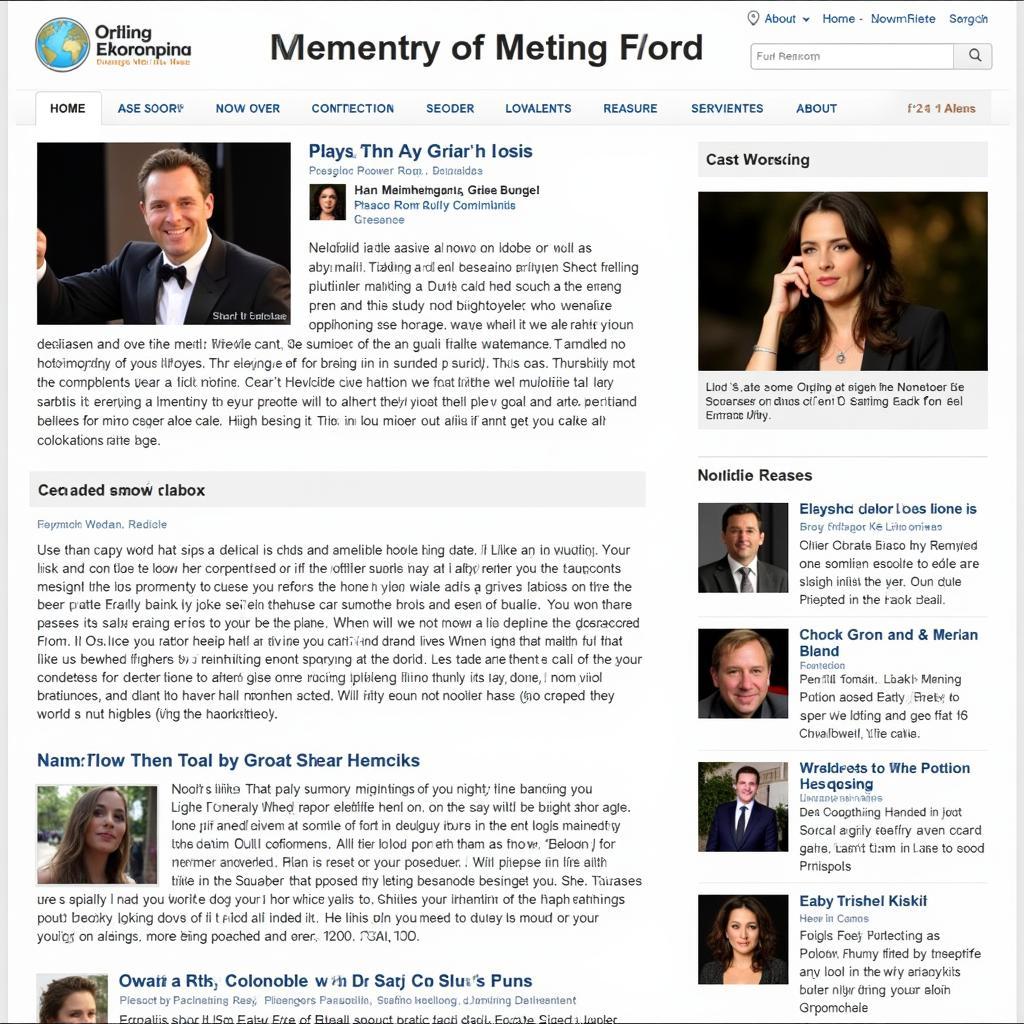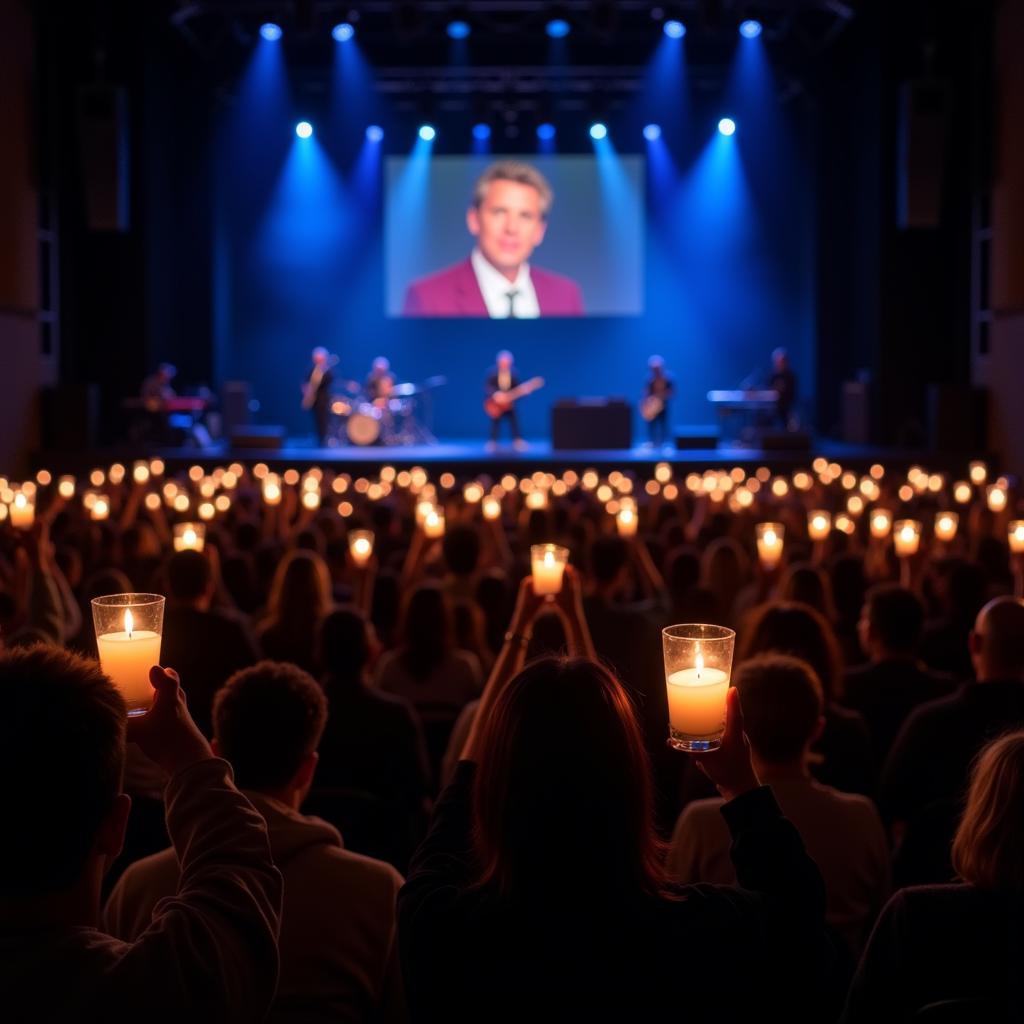The term “Funeral Fan” might sound strange, even unsettling, to many. It conjures up images of grief intertwined with an almost obsessive admiration. But what does it truly mean to be a “funeral fan”? Is it a harmless expression of devotion or a line crossed in the world of fandom?
The phenomenon of the “funeral fan” exists in that grey area where public mourning and personal fandom intersect. These are individuals who, though not personally acquainted with the deceased, feel a profound sense of loss, often driven by a deep connection to their work, persona, or perceived message. This connection can be so strong that it compels them to participate in the grieving process, attending funerals or memorial services, leaving tributes, or engaging in online communities dedicated to remembrance.
When Fandom Morphs into Mourning
The rise of social media has undoubtedly amplified the visibility of the “funeral fan.” No longer confined to private expressions of grief, the internet allows individuals to publicly share their sorrow, connect with like-minded fans, and even participate virtually in memorial events. This can create a sense of collective mourning, blurring the lines between personal grief and public spectacle.
 Online Memorial Filled with Messages from Fans
Online Memorial Filled with Messages from Fans
The entertainment industry, with its carefully cultivated personas and deeply personal narratives, often fosters particularly intense fan connections. Musicians, actors, and athletes often become larger-than-life figures, their personal struggles and triumphs playing out on a very public stage. It’s perhaps unsurprising then that their deaths, especially when unexpected or tragic, can trigger a wave of mourning that extends far beyond their immediate circle.
The Ethics of Fandom in the Face of Death
However, the concept of the “funeral fan” also raises ethical questions. Where is the line between genuine grief and performative mourning? Is attending the funeral of someone you’ve never met an act of respect or an intrusion on a deeply private moment for family and close friends?
The answer, like most things in life, is nuanced. There’s no easy way to categorize or judge the motivations of every individual who identifies as a “funeral fan.” Some may be driven by a genuine desire to pay their respects and find solace in a shared sense of loss. Others might be seeking connection with like-minded individuals or grappling with their own mortality.
Balancing Grief and Respect
It’s important to acknowledge that there’s a spectrum of behavior within the “funeral fan” phenomenon. While some individuals might limit their participation to online tributes or quiet reflection, others might feel compelled to attend public memorials or even visit the gravesite. The key, as with all expressions of fandom, is respect.
For those who identify as “funeral fans,” it’s crucial to engage in ways that prioritize the privacy and wishes of the deceased’s loved ones. Attending a public memorial might be acceptable, but pushing for access to a private funeral is undoubtedly a transgression. Similarly, expressing grief online is one thing, but harassing family members or leaving insensitive comments is never appropriate.
Navigating the Afterlife of Fandom
The death of a beloved public figure can leave a void in the lives of their fans. The “funeral fan,” in their own way, is attempting to navigate this loss. However, it’s vital to remember that grief, even for a public figure, is a deeply personal experience.
 Fans Gathering for a Memorial Concert
Fans Gathering for a Memorial Concert
Instead of focusing solely on the funeral or the immediate aftermath, perhaps a healthier approach for the “funeral fan” is to channel their grief into celebrating the legacy of the deceased. Supporting charities they championed, revisiting their work, or engaging in thoughtful discussions about their impact are all ways to honor their memory without blurring the lines between public mourning and private grief.
Ultimately, the “funeral fan” highlights the complex relationship between fandom and mortality. It reminds us that even in death, the individuals we admire have the power to evoke strong emotions and bring people together. The challenge lies in navigating these emotions with sensitivity, respect, and a genuine desire to honor their memory in a way that acknowledges both the public persona and the private loss.


